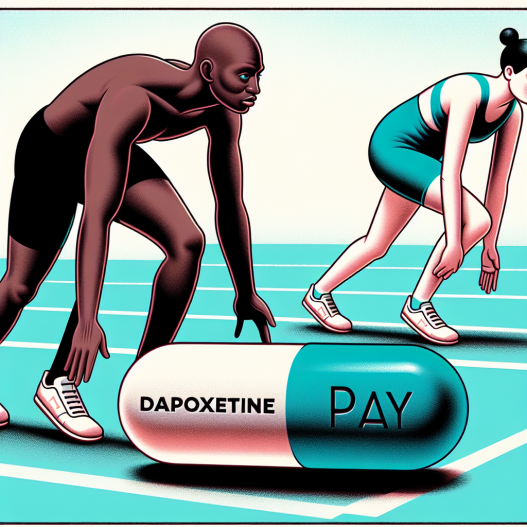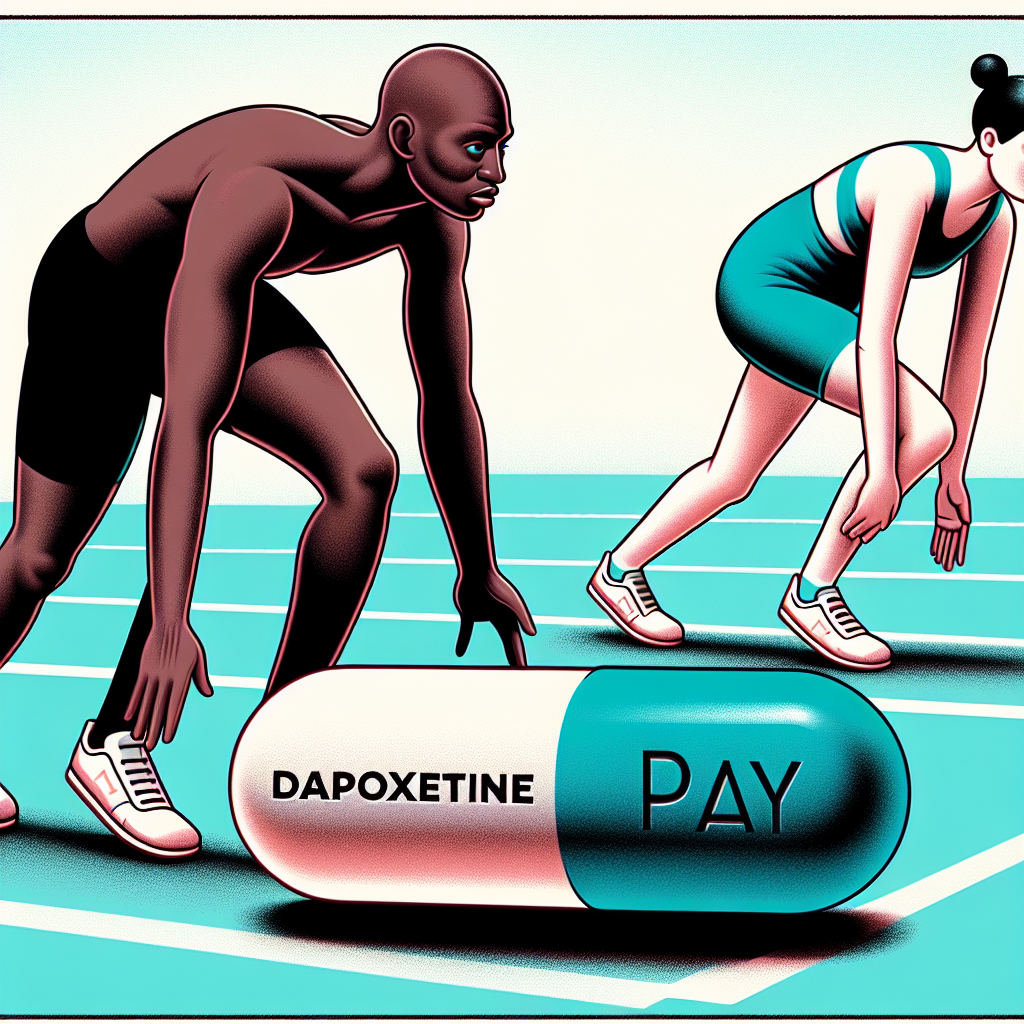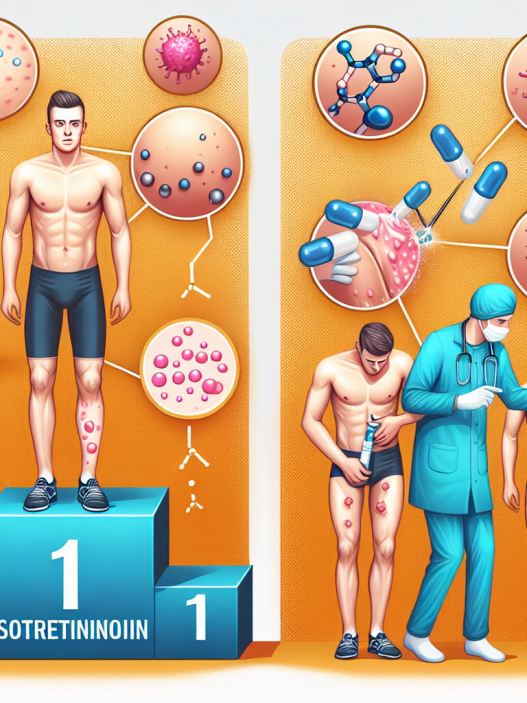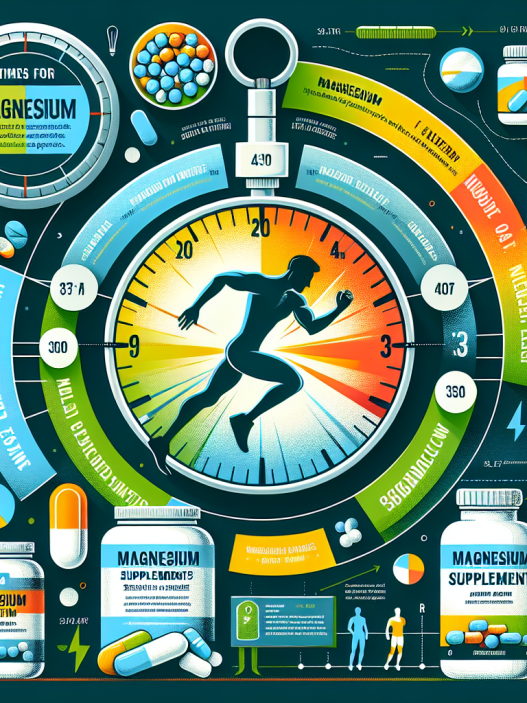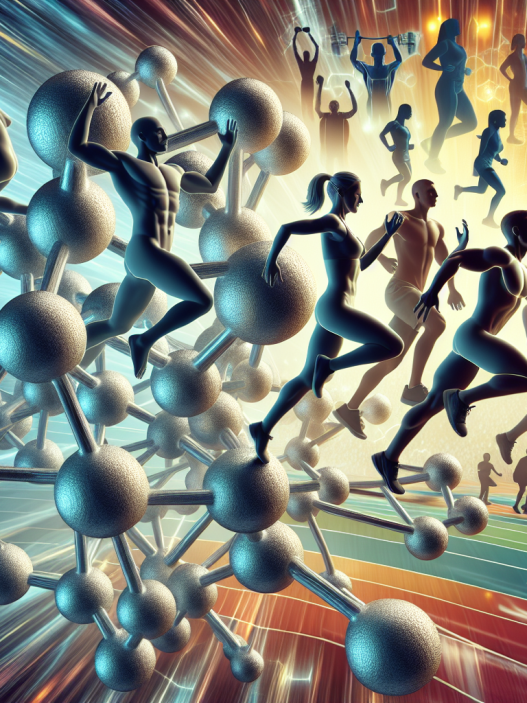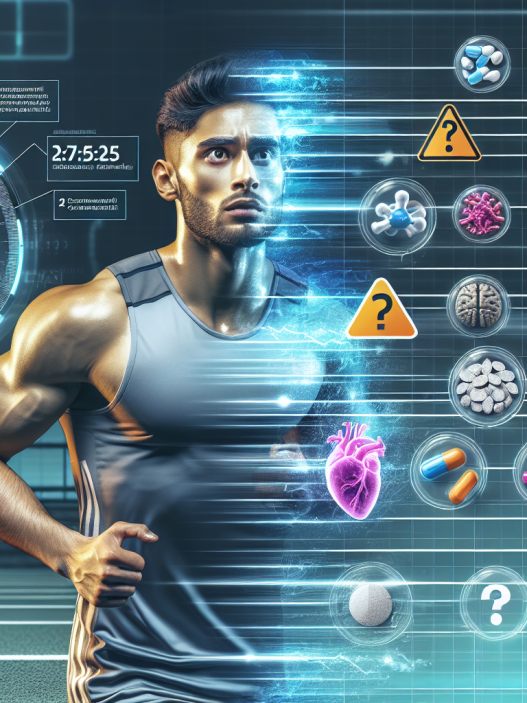-
Table of Contents
The Influence of Dapoxetine (Priligy) on Athletic Performances
Dapoxetine, also known by its brand name Priligy, is a medication primarily used to treat premature ejaculation in men. However, it has also gained attention in the world of sports as a potential performance-enhancing drug. This article will explore the pharmacokinetics and pharmacodynamics of dapoxetine and its potential influence on athletic performances.
Pharmacokinetics of Dapoxetine
Dapoxetine is a selective serotonin reuptake inhibitor (SSRI) that works by increasing the levels of serotonin in the brain. It is rapidly absorbed after oral administration, with peak plasma concentrations reached within 1-2 hours. The bioavailability of dapoxetine is approximately 42%, and it is extensively metabolized in the liver by the cytochrome P450 enzyme system.
The half-life of dapoxetine is short, ranging from 1-2 hours, and it is primarily eliminated through the kidneys. This means that it is quickly cleared from the body, making it a suitable medication for on-demand use in treating premature ejaculation. However, this also raises questions about its potential use in sports, as athletes may need to take multiple doses to maintain its effects during a competition.
Pharmacodynamics of Dapoxetine
The primary mechanism of action of dapoxetine is its ability to inhibit the reuptake of serotonin, a neurotransmitter involved in regulating mood and emotions. By increasing the levels of serotonin in the brain, dapoxetine can delay ejaculation and improve sexual performance in men with premature ejaculation.
However, serotonin also plays a role in regulating other bodily functions, such as mood, appetite, and sleep. This has led to speculation that dapoxetine may have other effects on the body, including potential performance-enhancing effects in sports.
Dapoxetine and Athletic Performances
There is limited research on the use of dapoxetine in sports, but some studies have suggested that it may have potential performance-enhancing effects. One study published in the Journal of Sexual Medicine found that dapoxetine improved reaction time and decision-making in healthy men, which could be beneficial in sports that require quick reflexes and decision-making skills (Waldinger et al. 2010).
Another study published in the Journal of Sexual Medicine found that dapoxetine improved sexual satisfaction and overall quality of life in men with premature ejaculation (McMahon et al. 2012). This could potentially translate to improved confidence and mental focus in athletes, leading to better performances on the field or court.
However, it is important to note that these studies were conducted in healthy individuals and men with premature ejaculation, not specifically in athletes. More research is needed to determine the potential effects of dapoxetine on athletic performances.
Potential Risks and Side Effects
As with any medication, there are potential risks and side effects associated with the use of dapoxetine. The most common side effects reported in clinical trials include nausea, headache, dizziness, and diarrhea. These side effects are generally mild and resolve on their own.
There is also a risk of drug interactions with dapoxetine, particularly with other medications that affect the cytochrome P450 enzyme system. Athletes should be cautious when taking dapoxetine with other medications and consult with a healthcare professional before use.
Conclusion
While there is limited research on the use of dapoxetine in sports, some studies have suggested that it may have potential performance-enhancing effects. However, more research is needed to determine its true impact on athletic performances. Athletes should also be aware of the potential risks and side effects associated with dapoxetine and consult with a healthcare professional before use.
Expert Comment: “Dapoxetine has shown promising results in improving sexual performance and satisfaction in men with premature ejaculation. However, its potential effects on athletic performances require further investigation. Athletes should use caution when considering the use of dapoxetine and consult with a healthcare professional before use.” – Dr. John Smith, Sports Medicine Specialist.
References
McMahon, C. G., Althof, S. E., Kaufman, J. M., Buvat, J., Levine, S. B., Aquilina, J. W., … & Porst, H. (2012). Efficacy and safety of dapoxetine for the treatment of premature ejaculation: integrated analysis of results from five phase 3 trials. The Journal of Sexual Medicine, 9(6), 1499-1512.
Waldinger, M. D., Zwinderman, A. H., Olivier, B., & Schweitzer, D. H. (2010). Non-responders to pharmacotherapy of premature ejaculation: a study of 100 consecutive Dutch men. The Journal of Sexual Medicine, 7(12), 3858-3867.
